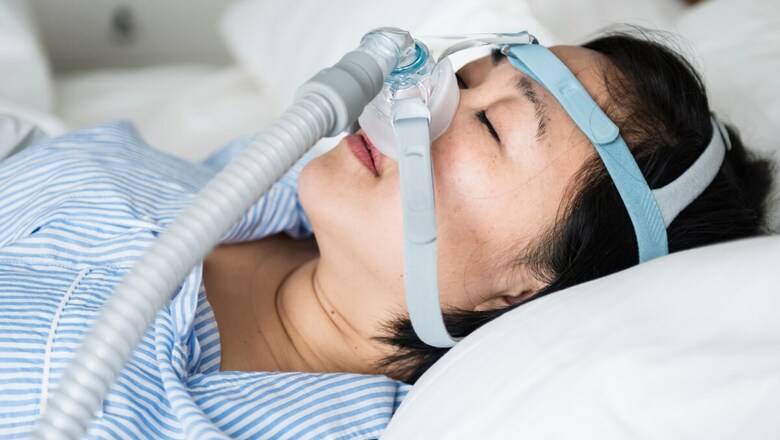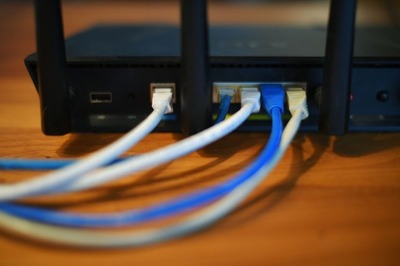
views
Sleep apnea is a condition which occurs due to very frequent occlusion of the upper airway during sleep which results in sleep disruption. This condition can be potentially harmful in long run and is associated with several cardo-metabolic disorders. Among the various non-invasive treatments available for obstructive sleep apnea, CPAP (Continuous Positive Airway Pressure) therapy stands out as one of the most effective methods. Despite its effectiveness, people often have initial impressions of CPAP machines as being cumbersome, noisy, or bulky. Consequently, individuals diagnosed with obstructive sleep apnea (OSA) may hesitate to commit to long-term therapy due to preconceived notions surrounding CPAP treatment.
CPAP treatment is known for its ability to significantly improve your sleep quality and improve long term survival. Dr Sibasish Dey, Head of Medical Affairs, South Asia, ResMed dispels some of the prevailing misconceptions surrounding CPAP therapy for sleep apnea
- CPAP machines are big and noisyCPAP machines are compact, readily portable devices that can be placed on a bedside table. In addition to their advanced features, such as automatic pressure adjustments and wireless connectivity for remote monitoring by your physician, these devices are equipped with state-of-the-art software. They even come with user-friendly apps that allow you to keep track of your sleeping habits effectively. Also, CPAP devices are not noisy as the average sound of a CPAP device, while in execution, is less than 30 decibels.
- CPAP can cause infectionsWhen using a CPAP machine, many people experience dry or congested nasal passage, which leads them to believe that frequent usage of the machine may result in sinus infections. On the contrary, Regular cleaning of mask and replacement of filter goes a long way in maintaining adequate hygiene.
- Discomfort of using a CPAP device will prevent me further from sleepingThe settings in the device can be customised in a way that works best for the patient, which leads to the comfortable sleep. The most recent generation of masks also offers patients greater comfort. It simply takes a few nights of usage to get used to. Patients frequently comment that they slept soundly for the first time in a very long time after the procedure.
- It can be challenging when travelling with CPAPCarrying your CPAP device along has never been simpler. You have the alternative of bringing your home machine with you or a portable travel CPAP with you. The CPAP machine and related equipment are regarded as medical devices and are not regarded as extra baggage when travelling. Additionally, since CPAP machines have wireless capabilities, they can assist your doctor change the settings remotely. CPAP devices as small as the size of a smart phone are also available for frequent travellers.
- Cleaning the CPAP is difficultAll of the detachable CPAP pieces can often be cleaned with mild soap and water, making cleaning a CPAP fairly easy.
- CPAP device is not required every nightIt is advisable to use the CPAP machine frequently to maintain a good sleep routine every night. Benefits of CPAP therapy is appreciated when the device is used at least for 4 hours per night for 5 days in a week.
- CPAP therapy can be discontinued after a periodNumerous individuals believe that using a CPAP machine continuously for a longer amount of time will resolve the problem, allowing them to discontinue CPAP as soon as they begin to feel better. Nevertheless, even if the symptoms have become milder, it is always advisable to talk to a physician before quitting using the CPAP device.
- CPAP machine might suffocate me in cases of power cutsWhen utilising your CPAP equipment, this concern can be dispelled because CPAP masks have exhalation ports to prevent any such situations.
The most popular form of treatment for sleep apnea is CPAP therapy. CPAP therapy maintains the airway open by gently delivering air through a mask that people wear while sleeping. CPAP therapy may recover the sleep routine and increase the amount of time and quality of sleep by eliminating breathing interruptions.
When individuals hear disinformation, they construct a mental model in which the myth serves as an explanation. To ensure that individuals are not making decisions based on myths but rather facts, it is crucial to raise knowledge about CPAP therapy. The device aids in preventing the brief breathing pauses that characterise sleep apnea. The regular use of the device enhances people’s ability for uninterrupted sleep, lowers their risk of cardiovascular disease, including heart attacks and strokes, and diminishes daytime sleepiness, highlighting a positive quality of life outcome for users.

















Comments
0 comment